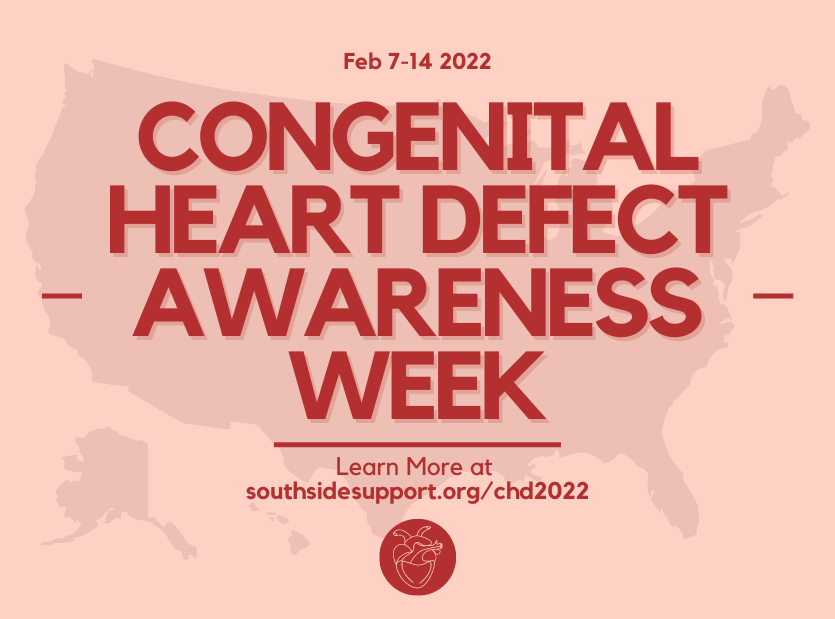The second week of American Heart Month is Congenital Heart Defect (CHD) Awareness Week. CHD Awareness week occurs every year from February 7 to February 14 and aims to raise awareness and promote education on CHDs.
What is a Congenital Heart Defect?
CHDs are heart defects present at birth that affect the structure of the heart and the way blood flows to the rest of the body. These defects range from mild to severe and affect approximately 40,000 babies in the United States each year. The occurrence rate of CHDs makes it the most common congenital disability in the United States. CHDs persist throughout a person’s lifetime but can often be treated through medical procedures. While some mild CHDs may not cause any limitations, approximately 1 in 6 people living with a CHD face some form of physical, educational, or occupational restriction.
Causes, Signs, & Symptoms of Congenital Heart Defects
Currently, the specific causes of CHDs are unknown. However, some factors are expected to be contributors to CHDs. These factors may include abnormal gene combinations, chromosomal abnormality, environment, and a mother’s health conditions during pregnancy, like diet, diabetes, obesity, or use of tobacco products and certain medications. The signs and symptoms of CHDs largely depend on the severity of the individual’s defect. While some mild defects may show little or no symptoms, some prominent symptoms include blue lips and nails, inconsistent breathing patterns, fatigue, and sleepiness when feeding.
How We Can Help
Education and understanding the early signs and symptoms of CHDs are crucial elements in early detection and awareness. This Congenital Heart Defect Awareness Week, take time to learn more about CHDs, spread awareness for the cause, and listen to the stories of those affected by CHDs. To learn more about CHDs, visit The American Heart Association.

